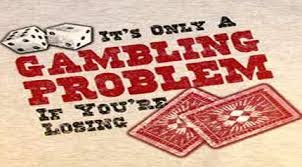
In the 1600s, Mathematician and Physicist Blaise Pascal came up with an argument for an existence of God based on the proposition the concept of gambling. He proposed that whether to believe in God or not was a wager that every human being takes. His argument went as following:
Premise 1. God either exists or doesn’t exist
Premise 2. Being that reason isn’t sufficient to answer this question, every man must wager on whether he does or doesn’t exist.
Premise 3. In order to make the wager, one must weigh out the possibilities, the gains, and the losses.
Premise 4. If you wager for God’s existence and live your life as if he exists and you are correct, then you gain an infinite reward (eternal life), but if you are wrong, then nothing will happen, and thus you lose nothing.
Premise 5. If you wager against God’s existence and live as if he doesn’t exist and you are right, then you gained nothing, because nothing will happen, but if you are wrong, then you lose everything due to infinite punishment (hell).
Premise 6. Wagering for God’s existence is a win-win, and therefore you should wager for God’s exist.
| N/A | God exists | God does not exist |
|---|---|---|
| Wager for God | Infinite gain | Status quo |
| Wager against God | Infinite loss | Status quo |
I am not writing this article to convince anyone of whether or not God exists, but rather to layout a particular form of argumentation before I use it on the subject at hand, namely whether or not the State should exist.

Background

Before we discuss the Wager, we should give a little bit of background to at least one of the premises that will be outlined in the fallowing wager. Every anarchist has talked to statists of one variety or another, and has heard almost all the objections to anarchism’s as one can possible think of, or arguments for the existence of the State. Certain objections tend to be very common, such as objections on the ground of a new state arising. It is my proposition that the average person when making an objection to anything they are arguing against will tend to state their biggest fear of the thing they are arguing against, that is to say, they are telling their opponent the worse thing they can think of as happening if their opponent were to have their way or were right.
If you ask statists what their objections to anarchism are, and thus what they believe the worse possible outcome would be if the State were to be shut down, you get about six common objections.
- There will be bribing of arbitrators/Judges to favor one party over another in disputes
- The poor will not be able to afford adequate defense when charged with a crime
- Warlords will take over
- Defense agencies will go to war with each other
- Private property defense agencies will collude or worse yet, monopolize and form and effectively form a new government
- There will be no objective law.
There have been countless articles written demonstrating why almost none of these situations will likely to occur, I will not repeat them here or rebut them. My only response in this article is that each and every one of these scenarios happens today, when a State does exist.
1. Judges are bribed
http://www.judiciaryreport.com/corrupt_judges.htm
2. Inadequate defense for the Poor
https://theintercept.com/2016/05/13/too-poor-for-justice/
3. Warlords
https://www.washingtonpost.com/blogs/monkey-cage/wp/2015/08/28/meet-americas-own-warlord/
http://time.com/4184368/drug-cartel-gangsters-ioan-grillo-book-excerpt/
4. Defense agencies go to War
The State is a Centralized defense agency, there are over 300 of them in the U.S at pesent, and they constantly go to with each other all the time.
5. Collusion of defense agencies/law enforcement
Policing agencies collude all the time to enforce their arbitrary laws that violate the freedom of the individuals. In theory, The States should protect the citizenry of their states from the overreach of the Federal government, in practice though, they became enablers of those who violate the Constitution by carrying out unconstitutional laws.
https://www.dea.gov/ops/taskforces.shtml
6. There is No Objective Law
The reality is that laws are the codification of the subjective preferences of politicians, the rulings of Judges, which only a fraction of all judicial rulings ever published for people to view, and on top of that regulations are always being crafted and revised by executive agencies. Laws change from day to day and even from state to state. What is legal in one State may very well land you in jail in another state, and all without you as an individual ever knowing about it until you are caught and charged with a crime. As they always say, “ignorance of the law is no excuse.”
Now that we have covered the reality that the Statist is afraid of the Status quo, we shall examine the Wager that I put forward.

The Anarchist Wager
For the sake of argument, I am going to concede to the statist that there is no rationally deducing whether the State is a legitimate entity or an illegitimate entity, or that it is immoral.
The argument goes as following:
Premise 1: Either the State exists or doesn’t exist
Premise 2: you must wager on the proposition as reason cannot give us an adequate answer to the question
Premise 3. In order to make an informed bet, we must weigh the pros and cons of all possibilities
Premise 4. If the State exists, the best possible outcome is a minimal state that protects life, liberty, and property.
Premise 5: If the State doesn’t exist, the best possible outcome is that complete liberty with market forces adequately working to solve disputes and protect life and property.
Premise 6: If the State exists, the worse possible outcome is a nuclear war or genocide
Premise 7: If the worse possible outcome is the status quo.
Conclusion: One should prefer a Stateless society as the rewards outweigh the negatives.
| N/A | The State exists | The State does not exist |
|---|---|---|
| Wager for the State | Minimal Government / least amount of tyranny | Total Liberty and a peaceful society |
| Wager against The State | Totalitarianism / Genocide | Status quo |
If the Anarchist is right, then even the statist wins by having complete freedom; and if we are wrong, the Statist wins again because we will have the Status Quo; making Anarchism a win-win wager.
lol all that just to say that the anarchist are right or is a win-win...
You know you can probably do the exist same game with the opposite.
Actually, even if the law is biased toward x or y, you can still act accordingly, while in a no-law land (can't even say state any more), the "ruling" issued by the most powerful guy with the biggest gun will just be as he pleases him. Meaning you can't act accordingly the law and can get hanged for whatever reason...
By the way, laws exist not because of politician but because, sometimes you need to make a decision over a problem 2 (or more) people can't resolve on their own. Hence the law takes a decision, says who's right and wrong, and this is done according law or common usage (which are laws... ).
And if there are laws is that because 2 people is some case will never agree on anything... hence a "judge".
Downvoting a post can decrease pending rewards and make it less visible. Common reasons:
Submit
well, if I just said "anarchism is a win-win", that would be too boring. 2. It wouldn't educate nobody as to the various types of arguments out there. and 3. It is much more fun to actually make arguments and points.
Also, the issue is not that the statist can say, "in a stateless society you can't have x" or "with a state you can't have y". but rather, that of weighting the worse case scenarios of each, and the best case scenarios of each, and then making a decision.
Downvoting a post can decrease pending rewards and make it less visible. Common reasons:
Submit
I feel a rebuttal is in order...but I have no idea where to start. So I will just disagree with everything except the "lol". You are right Matthew can be funny!
Downvoting a post can decrease pending rewards and make it less visible. Common reasons:
Submit
I believe your second table contains an error. The labels for "Wager for the State" and "Wager against The State" [sic] should be swapped.
Downvoting a post can decrease pending rewards and make it less visible. Common reasons:
Submit
no, no error.
Downvoting a post can decrease pending rewards and make it less visible. Common reasons:
Submit